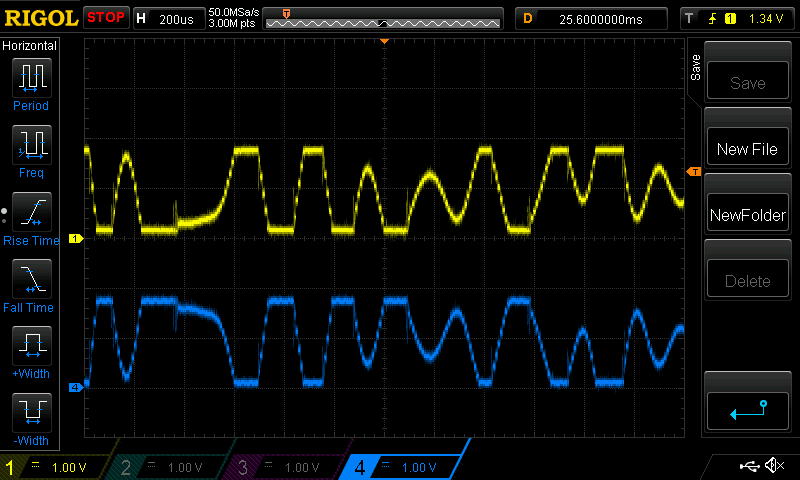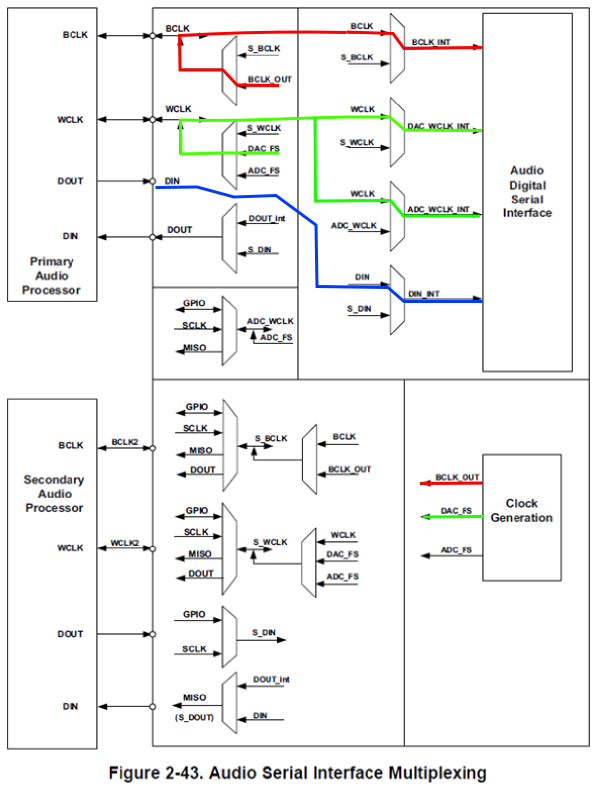Other Parts Discussed in Thread: TPA3118D2
Hi All!
I've been experimenting with the PCM3070 CODEC with miniDSP. I don't have an EVM, but instead, I designed my own test board that includes a TPA3118D2 analog class-D amplifier. Without an EVM, I'm not able to test the Control Software or PurePath directly, but to manually program and configure registers using an MCU and the I2C bus. My setup includes an onboard 24,576MHz oscillator tied to MCLK pin.
- The analog bypass path works properly (no need to program coefficient/instruction memory)
- The mixer amplifiers bypass path works properly (no need to program coefficient/instruction memory)
- When using processing blocks in both ADC and DAC, instead of the miniDSP (configuring reg[0][60] and reg[0][61]), the data path works properly with some non-trivial adjustments: setting WCLK and BCLK as outputs, using BCLK_N divider and setting the loopback control "Stereo ADC output is routed to Stereo DAC input" in reg[0][29], and of course, setting proper values for the PLL to work for a 44.1KHz sampling rate.
- NOT WORKING: When using the miniDSPs for signal processing, PurePath must be used to generate the required coefficients/instructions for both miniDSP cores, according to the designed process flow. By using the Build->Generate Code option, PPS generates the .h file driver that I append to my MCU code. When booting the PCM3070 code with the PPS code, the codec only outputs a loud noise (not the 60Hz hum noise mentioned in another thread, I'm using a stereo differential output) in both channels.
Here's my simple test process flow:
Here's a screenshot of the differential outputs of one channel, centered around a common mode voltage of 0.9V:
I can change the DAC volume (the noise volume), but by testing several register configurations, I can't manage to send proper ADC data to the DAC input when using the miniDSP cores. Thus, Im not able to use PPS to load any desired process flow.
Is there something that I'm missing? I've tested an EQ example included in sompe other PCM3070 thread, and also the SoundBar process flow (with the proper input and output routing configuration) but no success... Has it happend to someone else?
I append the configuration file used, generated by PPS and formatted for my MCU code.
I highly appreciate any help.




